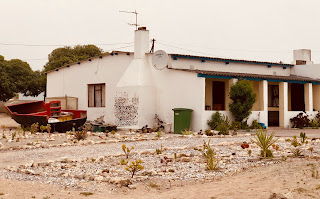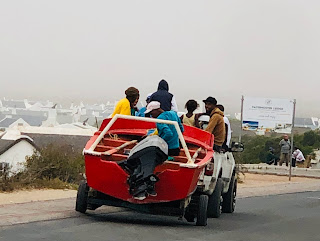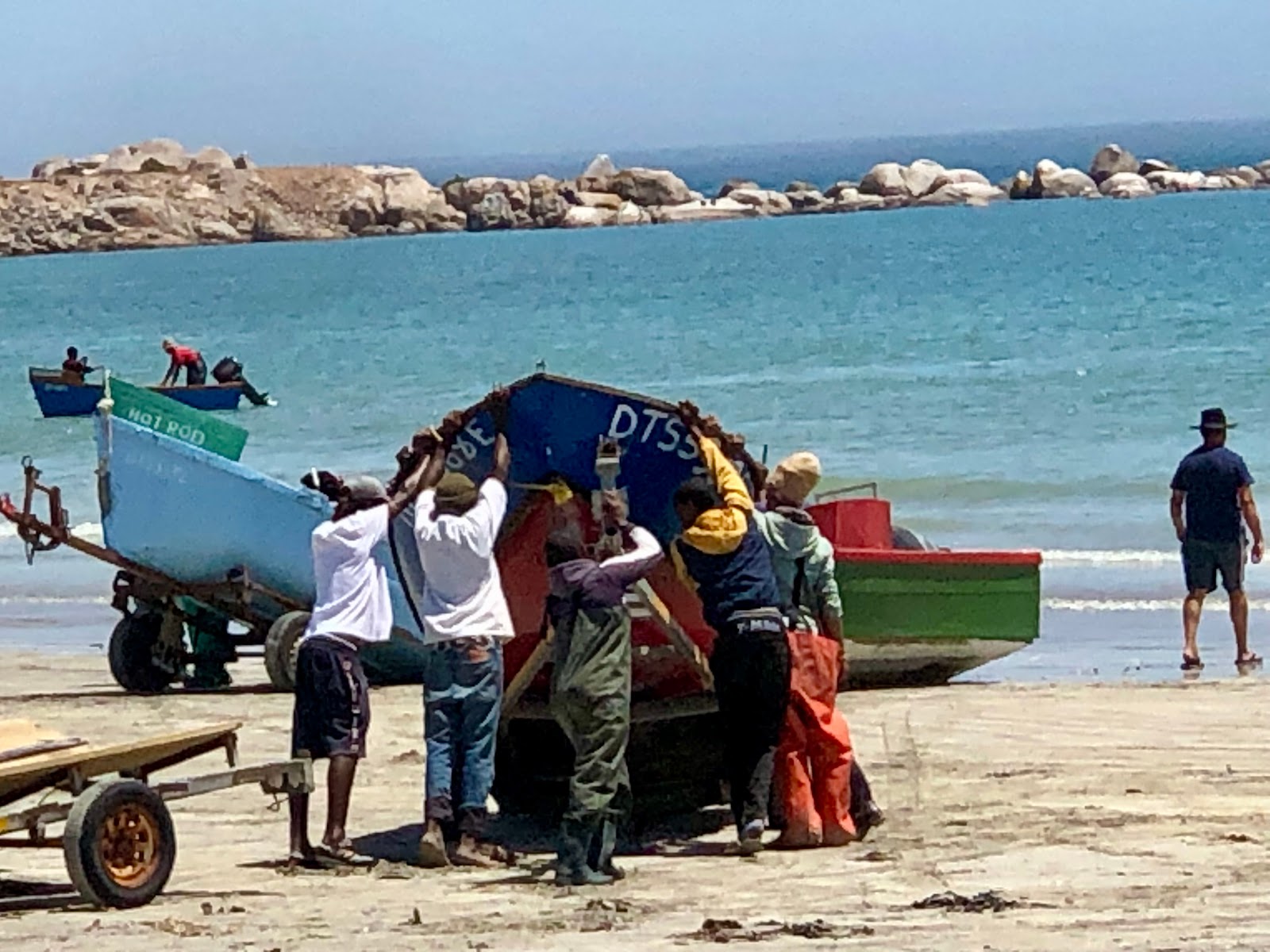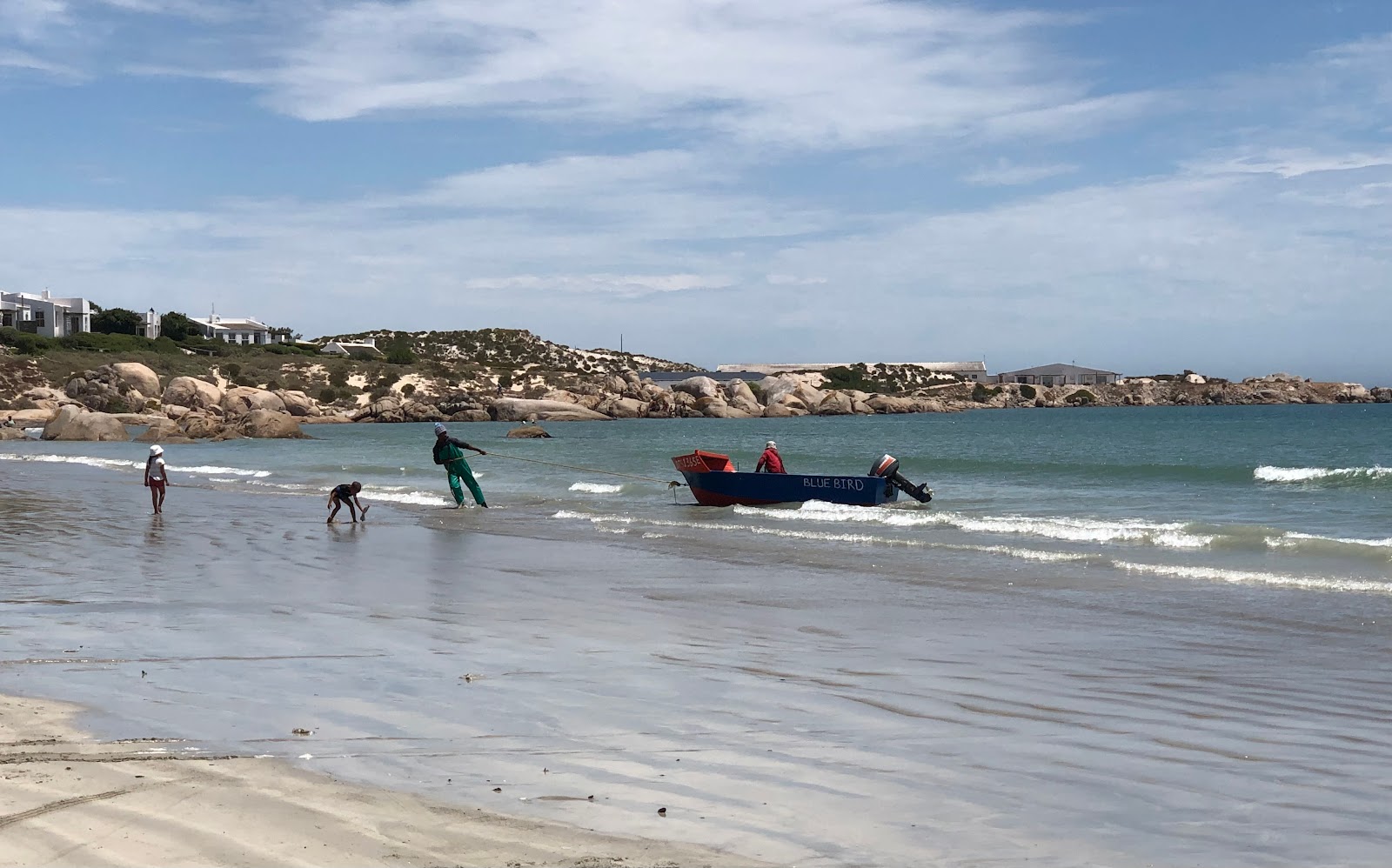I’ve flicked through those travel magazines. I’ve seen those pools attached to the edge of amazing resorts in the Seychelles or the Maldives or Bora Bora.
The water is blue. The sea beyond is blue. The sky is blue. The woman leans back against the side. Her arms outstretched. Her hair sculpted back with water. Her skin turning from white to bronze with waterproof SPF 50.
I may swim in an infinity pool one day, but it will not be in a resort. Me and resorts don’t wear the same knickers.
I want to talk about the SeaPoint pool. In a place called Sea Point. Which is a pointy part of the city of Capetown.
It is a public pool.
There are lots of people doing very little, but they have a uniform . This is quite common in Capetown. There are people with an official vest who are the wardens for six parking spots. Somebody else in the same vest guards the next six down the road.
When you get to the pool there is a lot of metal fencing to make sure you go in the right way. There is a sign. “The entrance.”
There is a man to spray your hands. There is someone else with a clipboard to take the names of some people but he never took mine.
There is a man to direct you to the ticket window.
My first time, I follow instructions and go to get my ticket.
The lady looked at me and said “You go in.”
I said, “I don’t have a ticket.”
She said, “you don’t need one. You pensioner. “
I looked a little surprised.
She said, “why pay? You old.”
After that I just walk through and wave as if my mask makes me invisible.
There are four pools. All filled with sea water.
One 50 metres long that is shoulder depth.
One 25 metres long that is waist depth.
One 20 metres long where you are up to your knees .
and the 25 metre diving pool that you cannot see the bottom.
There is a tuck shop.
There are patches of grass to set up your weekend home from home. There are no changing rooms. Or none that are available to swimmers. There are many life guards in red and yellow. There are signs telling you what you can and can’t do in English, Afrikaans and something else.
But it is on the lines of don’t run, don’t climb on anyone, don’t sit on anyone’s shoulders, and no tents or canopies by the poolside.
During the week, when I go at 8.30 in the morning, it is white people swimming up and down in the big pool. For the most part behaving very well.
But at the weekend, it is a massive party, a circus of tents and blankets and coolers and bags of Kentucky Fried Chicken.
By 9 o’clock, the big and small pools are filled with kids daring each other to jump. Running around the poolside, racing each other to see how many strokes they can do without sinking. Teenagers in brightly colored bikinis and braids wound around their heads into a top knot walking around and around the pool to make sure they are seen before their hair unravels. Women carrying their babies, giving them a first try, dunking them gently. Boys and girls, skirting around each other in the water as the flirting begins. And this is where the rules come into play. The lifeguards, and their whistles come out and the hand gestures are always two arms moving apart. I sorted it out eventually. It is basically no foreplay.. The sign that says “no Piggy-backs” “no climbing on each other”, means unhook yourself from each other.. And the lifeguards are the monitors to prevent fun with consequences.
Last Saturday I was the only white person left going up and down. It requires me to check that I am not running into groups of young kids, which is easy enough to do. As I came to the far end, I saw the lifeguard admonish two young girls “to watch out for Auntie. To give Auntie space.” That was me. I had been “mama” to the security guard at the Cape Quarter when he wanted to know if I could leave my lap top with him because it was so hard to fill out job applications on his phone. Now I was Auntie.
“can we swim with you Auntie” they said. Amira 12 and Azziz 11.
“Do you live in a big house?” Do you see the ocean from your house?”
“Have you ever met anyone famous?” Is he your husband?”
“Are you very old?”
“Can you take me to America?”
“My mother says there are some strange things going on in America.”
“I Love white people.”
“I have met some.”
“Can you teach me how to swim like auntie does?”
I have become very adept at slipping off my costume under a towel. I walk out and someone in a uniform shows me the way to the exit, which is marked exit. and then I have to walk behind some fencing to the sign that says “exit here”
It’s good to be told I think.
And I am glad they are lots of jobs at the Seapoint Pool. Even for the lifeguard who called me Auntie.































